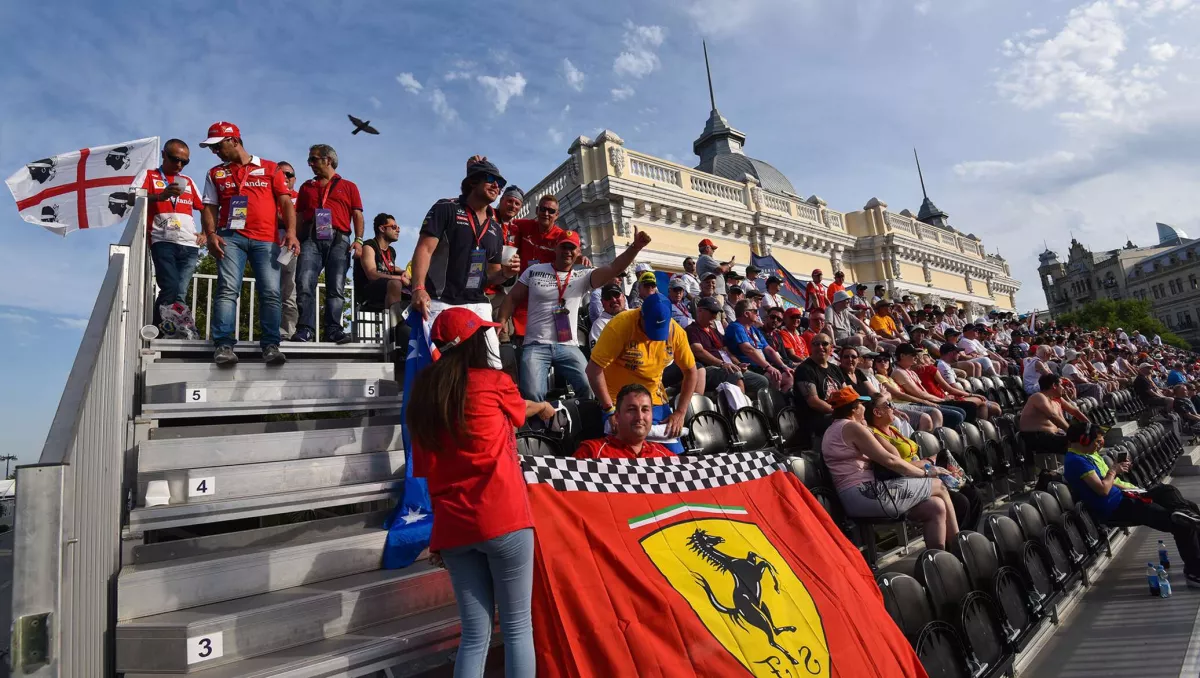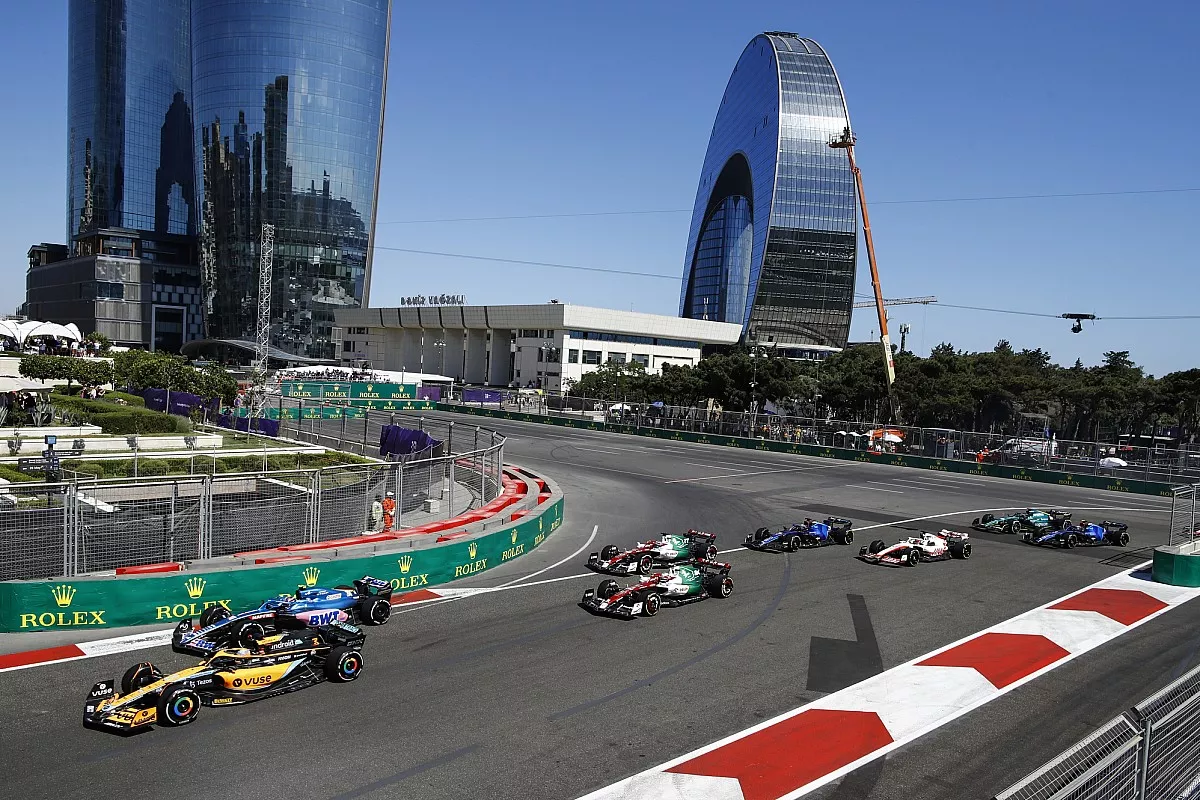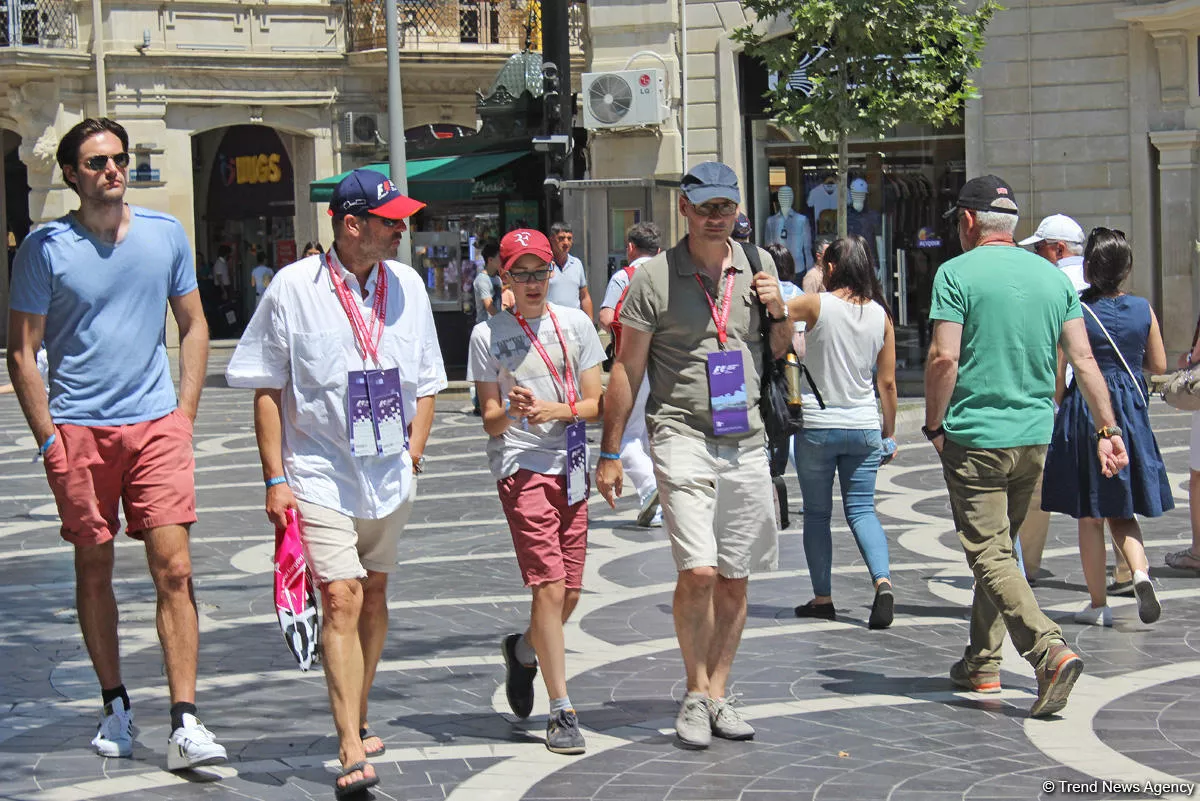How Formula 1 is turbocharging tourism and revenue Baku Grand Prix thrills
Over the past 15 years, Azerbaijan has gained significant experience hosting a wide range of international events, from spectacular shows and music festivals to major sports competitions. Experts note that such events enhance Azerbaijan's tourism potential, drawing fans and visitors from around the globe.
One of the standout events is the Formula 1 Azerbaijan Grand Prix. Now in its eighth edition, with races kicking off on September 13, this high-profile global event has not only boosted the international visibility of Baku but also become a highly profitable venture in recent years.
The roar of turbocharged engines tearing through the streets of the capital marked the start of another Formula 1 race. On the first day of the competition, there were two free practice sessions for Formula 1 cars, as well as a test session and qualifying rounds for Formula 2. From September 13 to 15, Baku is hosting one of the world's most prestigious sporting events for the eighth time, with a global television audience exceeding 1.55 billion people.
According to Baku City Circuit, this year’s event will reach a record global audience, with around 300 media representatives covering it—two-thirds of whom are major international media giants. Exciting Baku races will be broadcast by Sky Sports, Motorsport, Canal+, Netflix, The Sun, ESPN, Autosport, and others. For context, the 2023 Azerbaijan Grand Prix was watched by 90 million people via television and social media. Given the record attendance of fans and tourists, as well as ticket sales, Baku City Circuit experts predict that this year’s Azerbaijan Grand Prix could set yet another record for global viewership.

For racing fans—both locals and visitors in Baku who have the chance to witness this spectacular auto show firsthand—there is an additional opportunity to dive into the world of motorsports. Unlike previous years, this year fans at the Seaside Boulevard will have the chance to experience all the famous Formula 1 entertainment activations. Among these activities is the Pit Stop Challenge, where fans will compete to change a car’s tires as quickly as possible. The team with the fastest time of the day will win prizes, including autographs and a tour of the paddock. As part of the interactive Giant Helmet program, fans will have the chance to design their own driver’s helmets in virtual reality with Giant Helmet F1 and share this unique experience on social media. Additionally, the Fan Zone will host a Fan Forum, where world-renowned F1 drivers will meet with motorsport enthusiasts.
The thrill of the event includes extreme entertainment such as motorcycle races inside a giant globe at speeds of up to 70 km/h, as well as captivating performances by acrobats and illusionists. The activities at Seaside Boulevard also feature a vintage car exhibition, various photo zones, and concerts by global music stars—Will Smith, J Balvin, and DJ and producer Black Coffee—taking place at the Baku Crystal Hall.
By expanding the entertainment program each year, the organizers are effectively commercializing the Azerbaijan Grand Prix, adding extra entertainment options to this purely sporting event. This strategy undoubtedly helps attract tourists, including many thousands of international visitors. Over the years, the Formula 1 races and associated entertainment have become a traditional and recognizable brand in Azerbaijan’s recreational sector.

Notably, last year saw racing enthusiasts from over 100 countries visiting Azerbaijan for the first time, and according to Baku City Circuit, all 30,000 tickets available for sale were sold out. This positive development was highlighted again in June of this year by Javad Javadov, Deputy Chairman of the Azerbaijan Tourism Board: “While the first year of the races in Baku didn’t deliver a strong return, subsequent years, particularly last year, saw all tickets sold out, with a significant portion purchased by foreign nationals. This is quite a high-profile event, and foreigners spend a substantial amount of money at Formula 1, often staying an extra week to visit various tourist attractions.” Overall, recent statistics indicate that a Formula 1 tourist in Baku spends an average of $3,000. Race fans are typically affluent, staying in five-star hotels, dining in upscale restaurants, and enjoying the city’s other tourist offerings.
It seems that the record-breaking numbers of recent years will be surpassed in 2024: all tickets for the Formula 1 grandstands have sold out, and due to the unprecedented influx of fans, two additional stands—“Zafar” and “Giz Galasi”—have been added to the original eight. This increases the total seating capacity by an additional 35 per cent, which is expected to correspond with a significant rise in revenue compared to last year.
Clearly, the main domestic beneficiaries of the Formula 1 event are the city’s hotels. Azerbaijan has developed a robust hotel infrastructure, with 757 hotels and similar establishments providing a total of 56,562 beds. Over a quarter of these hotels are located in the capital and its surrounding areas, making them potential accommodations for Azerbaijan Grand Prix guests.
"Formula 1 is a global sport that not only enhances Azerbaijan's international prestige but also opens up significant economic opportunities. Since 2016, tourism revenue, interest from foreign guests in Baku, and contributions to the economy have been increasing year by year," said Magsud Farzullayev, CEO of Baku City Circuit, in a recent interview with Euronews.

It’s worth noting that the Azerbaijan Grand Prix entered the global top 10 of Formula 1 races in 2017. According to information released by Baku City Circuit in 2020, the total profit from the first four years of hosting the race amounted to $506.3 million. International auditing firm PricewaterhouseCoopers (PwC) highlights that, in addition to direct revenues from the tourism sector—primarily hotels and restaurants directly servicing Formula 1 guests and participants—indirect revenues should also be considered. These include income from the sale of goods, various services, and transportation, telecommunications, utilities, and other services.
Since then, the number of companies involved in supporting the Formula 1 event and the range of services provided to fans and tourists have grown significantly. In 2024 alone, around 1,500 staff, 2,000 volunteers, and 1,400 marshals were involved in organizing the Azerbaijan Grand Prix, with all hotels in the city fully booked. Consequently, the profitability of this event continues to rise each year, and it is likely that this year’s Baku races could set yet another record.








